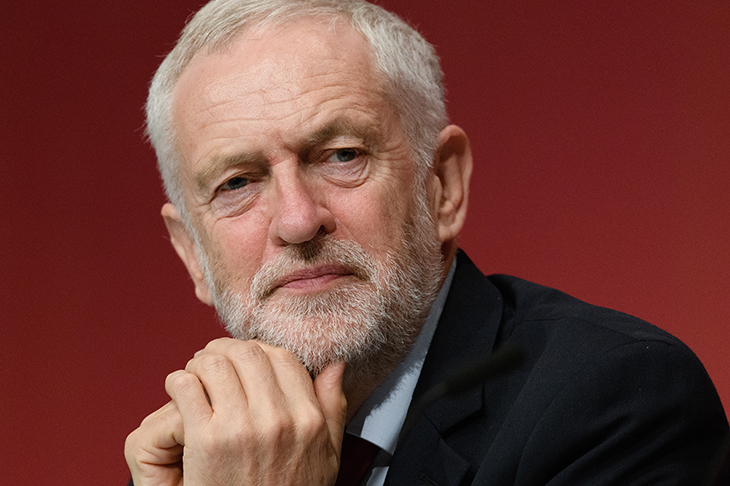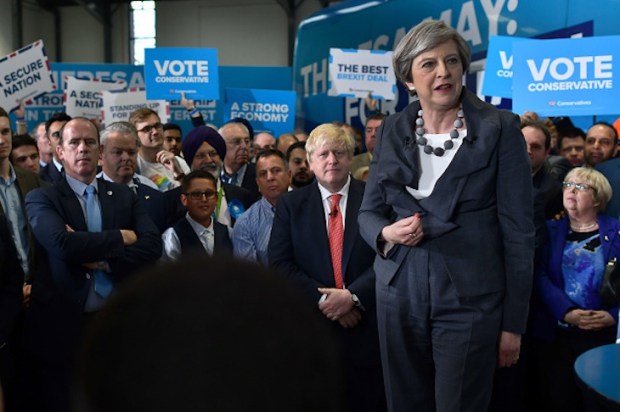A moment arrives when one does just have to admit defeat. We shall leave the European Union and there isn’t a lot of point going on about it any more. I’m still sure it’s a mistake, but there we are. In a democracy the majority is entitled to make a mistake, just as the minority is entitled to say so. I say so. I’d hoped we could change people’s minds but we haven’t, so enough from me on that.
A general election is a different matter. Here too, of course, the majority is entitled to make a mistake, but resistance remains possible and legitimate because there’s always the opportunity at the next election to reverse the electorate’s previous decision.
The trouble is, however, that I don’t want to. I don’t want a Labour government: certainly not one led by Jeremy Corbyn but (assuming he goes soon) not one led by Rebecca Long-Bailey, Angela Rayner, or whoever. There’s scant hope for people who think as I do that in the next few years a Johnson-led government will be seriously challenged by any party we’d like to see replace it.
So where do we go, politically? My thoughts are still settling, as must be the thoughts of millions, but they point already towards a tricky path. I don’t admire or trust Boris Johnson, and his decisive victory at a general election doesn’t alter that opinion. I think it’s not going to work out; however I may very well be wrong: I didn’t believe New Labour was going to work out.
But I’ve no intention of burying my scepticism — there’s a line to be drawn between doubt that tries to keep an open mind, and a blind and ears-blocked railing against a government and its leadership, seizing on every fault and admitting of no success. After Margaret Thatcher came to power in 1979 the dissenting noise was of a whole street of screaming ambulance sirens. I remember thinking they should give her a chance.
Some did. The Guardian’s Hugo Young, always a sceptic, could see she was interesting and onto something, which puts his political biography, One of Us, among the best works of its kind in modern British history, equalled only by the first volume of Charles Moore’s masterly biography of Lady T.
So I think I’ll be trying to tread the narrow path between hostile and supportive commentary. Millions like me will, too, be keeping a wary eye on Mr Johnson, but an interested one. It’s entirely possible there will be a new stage to this remarkable man’s rocket.
In that spirit, let’s pick up on and take forward the last column I wrote in this magazine. There, I discussed the Tory strategy of bringing over the English north and Midlands to the Conservative cause, warning that voters who’ve not previously been supporters lend their support — and must never be thought of as having been captured, like prisoners of war. I also warned that the appearance of a big slosh of support from Labour to the Tories may sometimes be deceptive: a similar effect can be achieved by Labour voters staying sulkily at home and Tory votes being easier to get out.
I discussed two nearby former-mining Derbyshire constituencies that I know quite well: Bolsover and North East Derbyshire. The first (I suggested) would fall to the Tories, and in the second the sitting Tory MP, who had worked hard over the years to turn a safe Labour into a marginal Tory seat, would increase his majority. I’m no prophet: these were safe predictions.
Both came true in spades. In North East Derbyshire the Conservative Lee Rowley scored a huge advance. In Bolsover, Labour’s Dennis Skinner fell even harder than predicted. So Johnson can — up to a point — fairly speak as he did on the steps of Downing Street as though ‘the people’ in such places have placed their trust in his new government. He spoke without hubris: his argument was that the trust now needs to be rewarded.
But I said ‘up to a point’. Look more closely at the voting figures in those places. In both constituencies the drop in Labour votes far outnumbered the rise in the Tory vote. In Bolsover Labour got some 8,000 fewer votes, while the Tories got some 3,000 more. In North East Derbyshire Labour got some 6,000 fewer votes and the Tories some 4,000 more. In both the overall turnout was slightly down. So we should not overstate the scale on which Labour voters actually ‘came over’ to the Tories. Only a few thousand probably did. Labour’s failure is not necessarily the Conservatives’ success.
Still: now Johnson needs to keep his converts and carry on energising his long-time supporters. How best to do this?
The Prime Minister is instinctively attracted to big, shiny toys. So am I. Though hardly his favourite, HS2 has become more than a much-needed addition to rail capacity between London and the Midlands and north: but a sort of covenant, too, of government’s dedication to the Northern Powerhouse. Johnson will surely not want to let down its great advocate, the Tories’ go-ahead mayor of the West Midlands, Andy Street, who faces a tight election race next year. To cancel HS2 in favour of the protests of wealthy and long-standing Tory voters in the Chilterns would give precisely the wrong signal. And a positive announcement on HS3 would make a big splash in Manchester and Leeds.
But beyond the whizz-bang lies a real and crying need in the more depressed English regions. George Osborne’s swingeing cuts (some 40 per cent) to local government spending were an astringent and mostly defensible part of ‘austerity’. But they are deeply felt in Doncaster, Rotherham, Chesterfield… places where struggling families are closer than many Spectator readers (or columnists) to what their town halls can do. The very fact that such work would be boring makes a useful test of the new seriousness that Johnson tried to demonstrate on the Downing Street steps. Does he mean it?
As I say, a wary eye. Let us see.
Got something to add? Join the discussion and comment below.
Get 10 issues for just $10
Subscribe to The Spectator Australia today for the next 10 magazine issues, plus full online access, for just $10.
You might disagree with half of it, but you’ll enjoy reading all of it. Try your first month for free, then just $2 a week for the remainder of your first year.















Comments
Don't miss out
Join the conversation with other Spectator Australia readers. Subscribe to leave a comment.
SUBSCRIBEAlready a subscriber? Log in